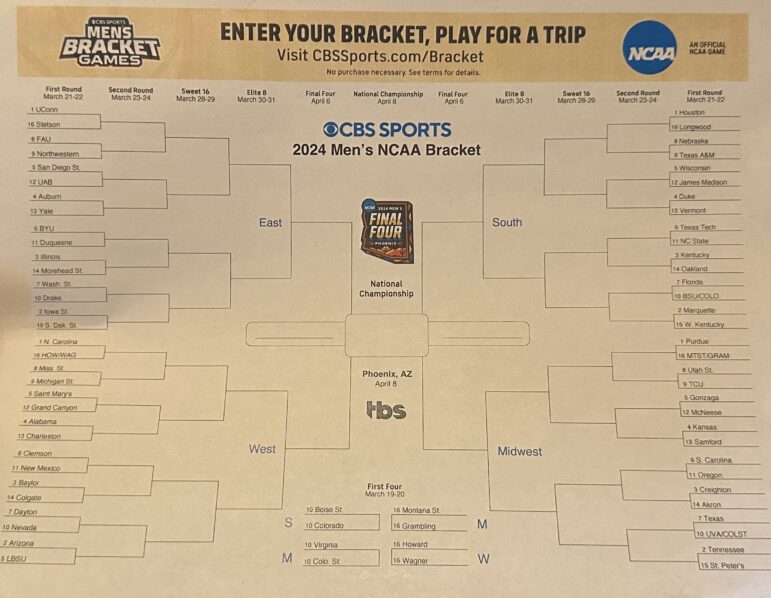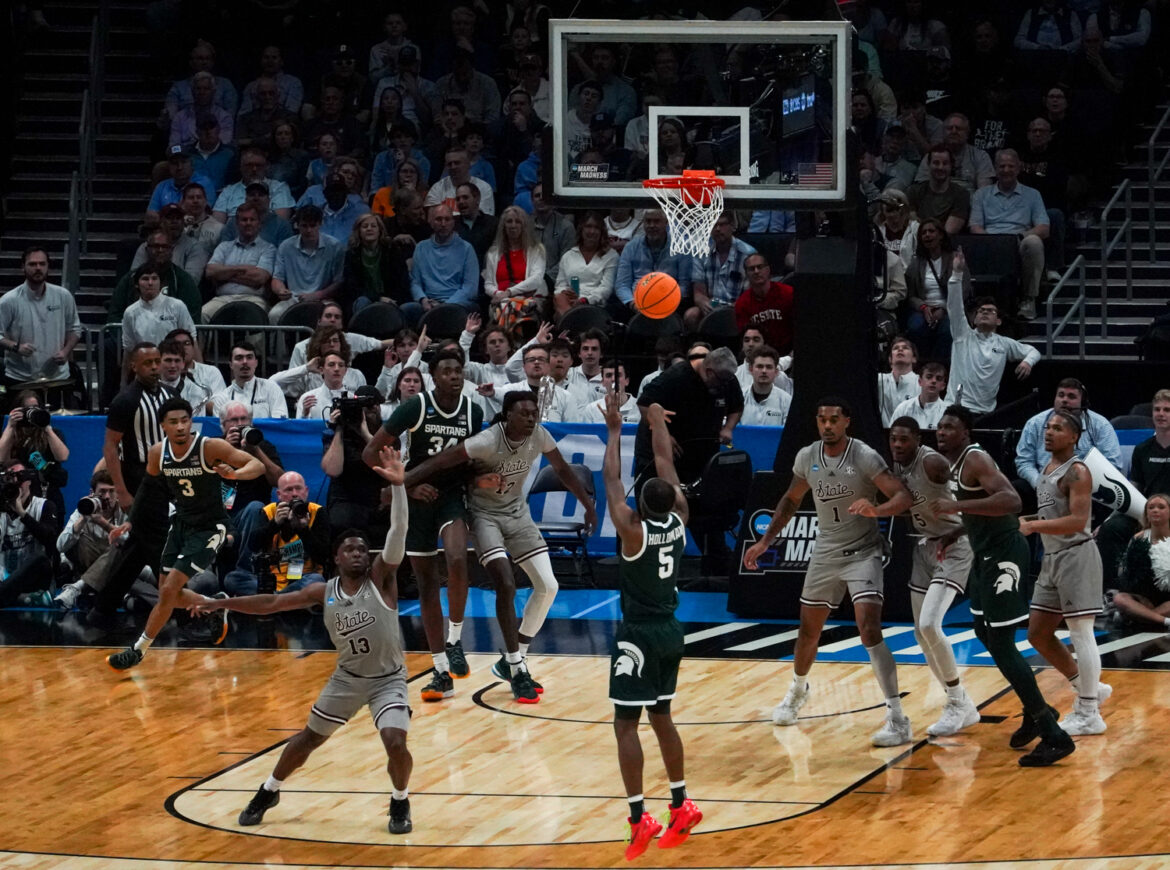
EAST LANSING, Mich.— March is officially in full swing, and with the warmer weather comes March Madness. The 68-team men’s college basketball tournament is one of the most viewed sporting events of the year.
In addition to watching the games, people from all around the country will gamble on the games as well. While SportsWatch reported that last year’s Final Four games were the least-watched in recent memory with 14.7 million viewers total, Nielsen reported that 2023’s March Madness tournament was still responsible for cable’s largest audience since August 2022. A new report released by the American Gaming Association estimated that there will be a dramatic increase in bettors for this year’s tournament. Last year’s tournament saw approximately 68 million bettors wager around $15.5 billion. That number is likely to be even higher for 2024, especially considering that the AGA reported a 35% increase in sports betting for Super Bowl LVIII just a few months ago.
One of the reasons that the men’s tournament will see such an increase in bettors is the vast amount of sports gambling advertisements. In a 2024 study conducted by the University of Bristol and CBC’s Marketplace, data showed that during NBA broadcasts, gambling advertisements across television and streaming accounted for about one-fifth of viewing time, equalling one minute of advertisements for every 2.8 minutes of game time. Outside of traditional broadcasting, the University of Bristol also released a study in 2021 that showed that social media platforms are giving extensive sports betting advertisement exposure to children.
Elliot Rapaport is the founder of Birches Health, a treatment center that specializes in helping patients battle their gambling addictions. Rapaport explained that sports gambling advertisements are putting young adults and youth at extreme risk for being introduced to gambling addiction.
“We definitely do think the ads contribute to gambling harm,” Rapaport said. “Also more than that, they affect individuals who otherwise might not be at risk, who are just surrounded by preponderance of gambling advertising and sports betting advertising.”
Rapaport advised viewers to be cautious when watching the upcoming March Madness games, especially if they are of gambling age.
“For individuals during March Madness these next few weeks who might not think of themselves as having any sort of unhealthy behaviors, you should just be really thinking hard about what are the healthiest ways to engage with the basketball games. Especially on college campuses,” Rapaport said.
Lansing Community College addiction counselor Jim Owens compared the science behind some sports gambling advertisements to the infamous Stanford prison experiment.
In the Stanford prison experiment students, volunteered to reenact a prison environment, where some students were given the role of guards and others were given the role of prisoner. Owens connected the normalization of imprisonment in the Stanford prison experiment to the normalization of addictive sports betting by state governments, which will affect many residents of those states without regard for their mental health.
“The governors have authorized [sports betting legalization]. And you know people will think, ‘Hey, gambling is okay.’ We’ll hear it from an authority. Or we’ll hear it from other political figures, industry leaders, economic leaders. People who are an authority, we look to them with a certain amount of respect. And because an authority figure has told us that gambling is okay, then we think, ‘Well, it’s okay. It’s sanctioned by an authority,’” Owens said.
“Gambling is an addictive vice,” said Michigan State advertising student John Frick. “So I think that given the frequency in the ads being shown, people naturally will want to win money and continually bet on games.”
Michigan State won their first game of the tournament on March 21, defeating the Mississippi State Bulldogs 69-51, and will continue to dance into the second round. As MSU continues to advance, thousands of Michiganders will be watching the tournament, and according to the AGA, thousands more will be betting.
If you or someone you know is struggling with gambling addiction, you can find local resources for help at Michigan.gov.
